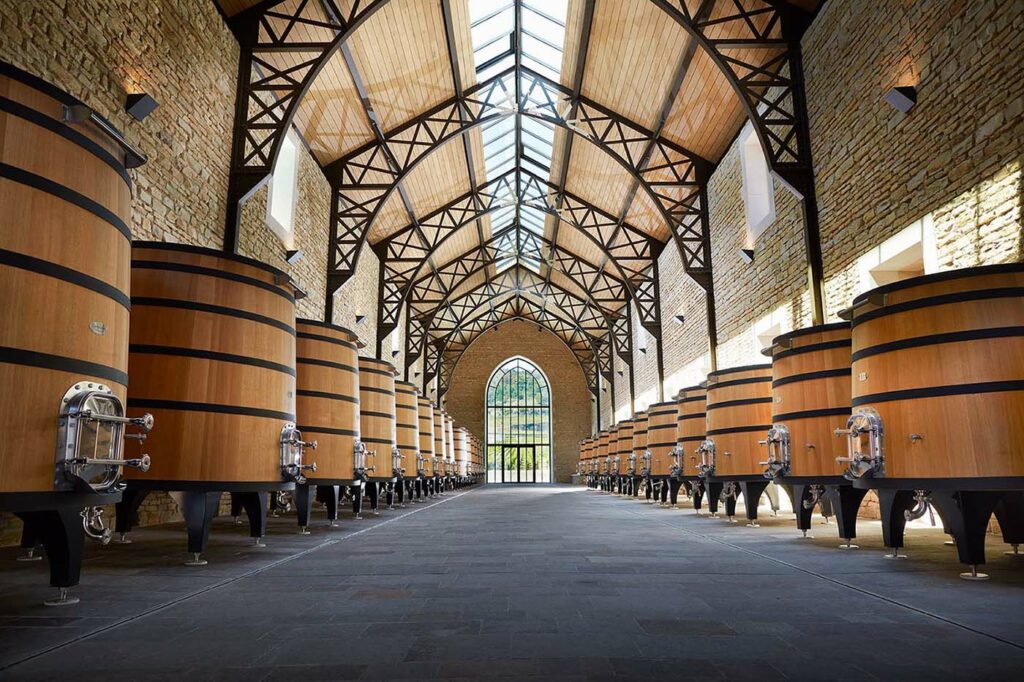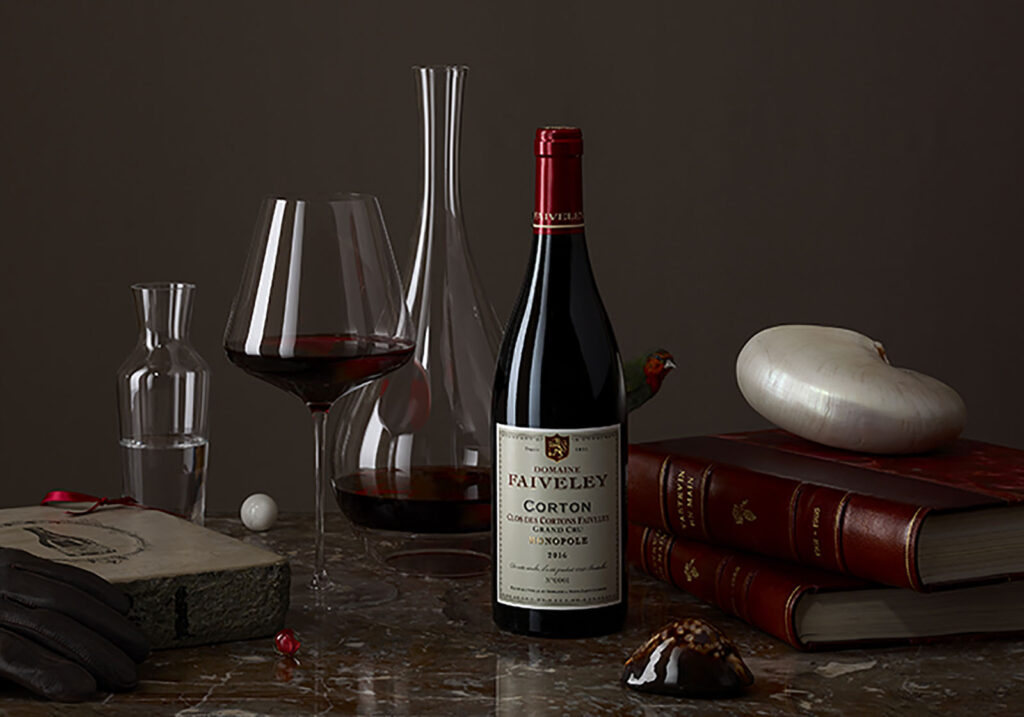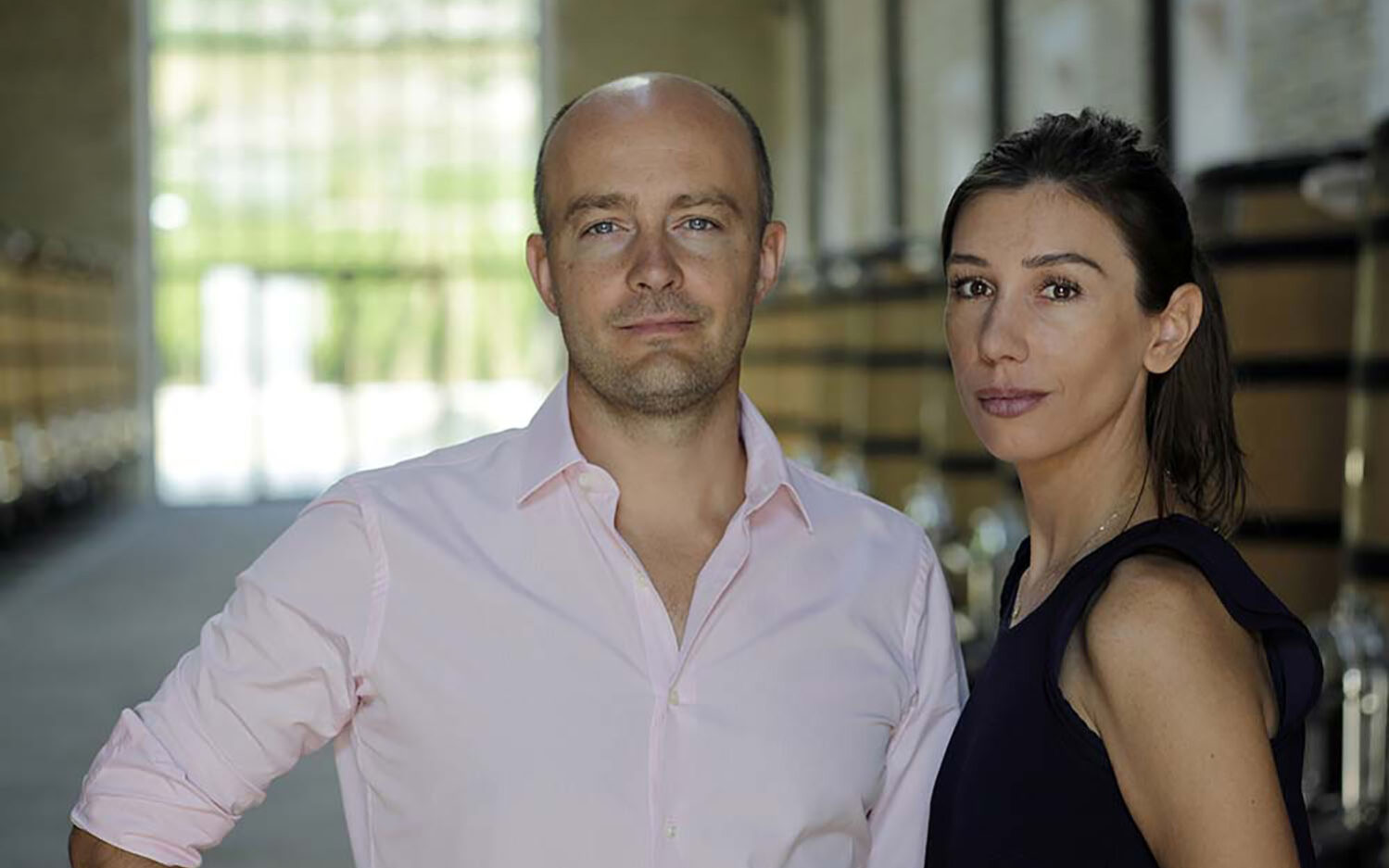The Faiveley wine estate has been established in Nuits-Saint-Georges, Burgundy since 1825. Today, the estate is managed by Erwan and his sister Eve who represent the seventh generation of the family that has managed it without interruption. As the Managing Director, Erwan has to combine two essential imperatives: to preserve the cultural heritage of his predecessors while following the current demands of the business world. There are many issues at stake, but Erwan’s career path has prepared him to face these challenges. After a Math Sup-Math Spé preparatory school, he attended ESCP, from which he graduated without thinking of going into the family business, and after graduating, he went to work in finance in the United States in a large industrial company. However, the development of the Faiveley company would change things.
The vines and the family tree
“In the family, we have two branches, one industrial and the other viticultural, and at first, I saw myself more in industry or finance. But my father offered me the general management of Faiveley and I accepted. Burgundy is my terroir, in every sense of the word. I was born in Dijon, did my early studies there and spent my entire childhood in the area.”

His career path was set: he would devote himself to the family estate. “I have an exciting job, but one that is extremely constrained by nature and the requirements of the product specifications. The wine world is not a sector where you can introduce many innovations. Wine has been made since time began, and although oenology has made progress over the last 50 years, the great estates now know the technologies that work. There is nothing earth-shattering about it, especially when we are talking about great wines.” For example, in Burgundy, harvesting machines do not bring any benefit, and “after fifteen years of trials, we have come to the conclusion that the natural oak cork is the best for the taste of the wine”. These observations do not prevent Erwan from closely following the evolution of technology, particularly the new tractors, which truly are robots.
Wine has been made since time began, and although oenology has made progress over the last 50 years, the great estates now know the technologies that work.
But it’s not just the techniques that change, it’s also the markets, and Faiveley has adapted its field of activity, particularly due to the rise in prominence of the U.S. The company has opened a branch there and invested in a Californian estate. Erwan also has an American penchant, “an incredible country” where he obtained an MBA at Columbia. In addition, after Faiveley entered into a partnership agreement with a large American company when it sold its transport division in 2016, Erwan became a director of the company.
The family: roots and a springboard
Faiveley’s slogan is “one estate – one family” and this is an asset for Erwan. “The family is not very large and the estate belongs to my brother, my sister and me. This is key for us and each of our ancestors has left their mark.”
It is true that Erwan’s predecessors were visionaries. “My great-grandfather, Georges Faiveley, was larger than life. After World War I, which he had lived through as a soldier, when the world crisis had almost stopped sales, he had the idea of bringing together all the French celebrities, the media, but also the American ambassador, to launch the Tastevins brotherhood in Burgundy, which had an extraordinary impact.”

Nowadays, there are tens of thousands of members around the world who meet to drink Burgundy’s great wines in the same format as originally created. “It’s a fantastic tool for promoting Burgundy and France.” Erwan’s father created the “Music and Wine” festival 12 years ago, the profits from which, along with the sale of wine, are used to award scholarships to young talent and to make high-quality musical instruments that are then given to musicians who cannot afford them.
When he took over as managing director, Erwan had no idea what he could change, but he was able to put all the investment in equipment and people into action.
The importance of family tradition has never kept me awake at night. It’s not a burden but an opportunity, because having such a strong family name is an asset in the wine world. It is an opportunity to do great things, and when I arrived, there were many projects to be implemented.
Erwan’s sister, Eve, joined the group after a career in cosmetics and wanting to return to work in the area where she spent her childhood. This is the first time that a woman has co-directed the company, handling marketing and communication.
Erwan believes that a family business is different from other types of businesses. “What sets us apart is the notion of time. We have a much longer term vision than a traditional business. This will condition the risks and trade-offs. The business is going to be linked in a very intimate way to the family and so we have a multigenerational vision.”
This state of mind also applies to the quality of the vines. “Today, the notion of sustainable development is increasingly important. We are working hard on this.” The entire vineyard is HVE (High Environmental Value) certified, a standard defined during the Grenelle Environment Forum. “I’m convinced that this is an advantage and will be mandatory in the future.” Furthermore, “A third of the estate is organic, but it is complicated to develop because there are two parasites that are difficult to fight without copper sulfate.”
Heading towards the bicentenary!
Founded in 1825, Faiveley’s bicentenary celebration is approaching and the family has been working on it for 12 years. “It’s not easy! We’re talking about a lot of possibilities with my sister – we have clear ideas. We have a huge advantage, for 50 years, the vintages in the years which end with a 5 have been extraordinary. We’re planning a world tour and then a gala dinner and we’ve been approached by the Hénokien association, which groups together all the businesses over 200 years old.”
License and Republishing
The Choice - Republishing rules
We publish under a Creative Commons license with the following characteristics Attribution/Sharealike.
- You may not make any changes to the articles published on our site, except for dates, locations (according to the news, if necessary), and your editorial policy. The content must be reproduced and represented by the licensee as published by The Choice, without any cuts, additions, insertions, reductions, alterations or any other modifications.If changes are planned in the text, they must be made in agreement with the author before publication.
- Please make sure to cite the authors of the articles, ideally at the beginning of your republication.
- It is mandatory to cite The Choice and include a link to its homepage or the URL of thearticle. Insertion of The Choice’s logo is highly recommended.
- The sale of our articles in a separate way, in their entirety or in extracts, is not allowed , but you can publish them on pages including advertisements.
- Please request permission before republishing any of the images or pictures contained in our articles. Some of them are not available for republishing without authorization and payment. Please check the terms available in the image caption. However, it is possible to remove images or pictures used by The Choice or replace them with your own.
- Systematic and/or complete republication of the articles and content available on The Choice is prohibited.
- Republishing The Choice articles on a site whose access is entirely available by payment or by subscription is prohibited.
- For websites where access to digital content is restricted by a paywall, republication of The Choice articles, in their entirety, must be on the open access portion of those sites.
- The Choice reserves the right to enter into separate written agreements for the republication of its articles, under the non-exclusive Creative Commons licenses and with the permission of the authors. Please contact The Choice if you are interested at contact@the-choice.org.
Individual cases
Extracts: It is recommended that after republishing the first few lines or a paragraph of an article, you indicate "The entire article is available on ESCP’s media, The Choice" with a link to the article.
Citations: Citations of articles written by authors from The Choice should include a link to the URL of the authors’ article.
Translations: Translations may be considered modifications under The Choice's Creative Commons license, therefore these are not permitted without the approval of the article's author.
Modifications: Modifications are not permitted under the Creative Commons license of The Choice. However, authors may be contacted for authorization, prior to any publication, where a modification is planned. Without express consent, The Choice is not bound by any changes made to its content when republished.
Authorized connections / copyright assignment forms: Their use is not necessary as long as the republishing rules of this article are respected.
Print: The Choice articles can be republished according to the rules mentioned above, without the need to include the view counter and links in a printed version.
If you choose this option, please send an image of the republished article to The Choice team so that the author can review it.
Podcasts and videos: Videos and podcasts whose copyrights belong to The Choice are also under a Creative Commons license. Therefore, the same republishing rules apply to them.





